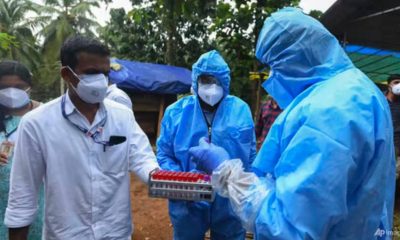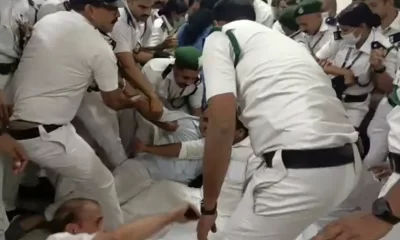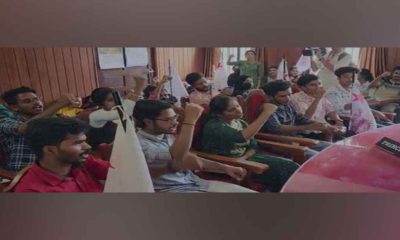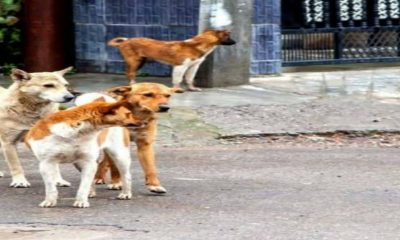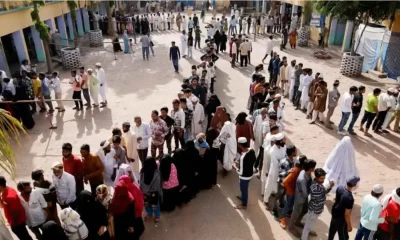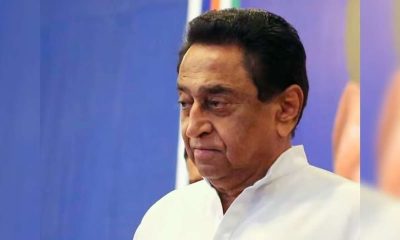Latest News
Sabarimala temple opens today, Kerala asks “activists to stay away”

Amid uncertainty over whether women of reproductive age will be allowed to enter Kerala’s Sabarimala temple despite the Supreme Court order, the Lord Ayyappa shrine opens today for the 41-day annual pilgrimage that begins on the first day of the Malayalam month of Vrishchikam.
The Supreme Court had on Thursday referred all petitions seeking review of its historic Sabarimala verdict, that lifted a centuries-old ban and allowed women of all ages to enter the temple, to a larger bench, which will re-examine various religious issues, including the entry of women into the Sabarimala temple and mosques and the practice of female genital mutilation in the Dawoodi Bohra community.
But the verdict sent the administration and the Kerala police into a tizzy. The Kerala government has made arrangements to avoid a repeat of violent clashes that erupted last year when women of menstrual age tried to enter the temple of Lord Ayyappa nestled in the hills of the western ghats.
Over 10,000 police personnel will be deployed in phases in and around the hill temple to ensure peace. Pathanamthitta district collector told the media that there was no need for declaring prohibitory orders like last year. However, the administration has asked “activists to stay away”.
“We won’t encourage women who want to visit the shrine only for publicity,” Devaswom minister Kadakampally Surendran said adding Sabarimala was not a place for activism and the LDF government would not support those who make announcements about entering the hill shrine for the sake of publicity.
Dismissing reports that the Kerala police would provide security to women activists who attempt to enter the shrine, he said there was “some confusion” over the latest Supreme Court order and women desirous of visiting Sabarimala should get a “court order”.
Law minister AK Balan said the government will consult experts on the “confusion” after the apex court’s judgment.
“This Sabarimala season will be peaceful. But if anyone tries to hamper the peaceful darshan of devotees, the government will take strong action. If someone thinks that they can exploit the devotees by spreading lies and turn them against the government, let me tell you, it’s not going to happen,” he said.
The Board, which manages the temples in the southern state, said resting places for the devotees at Nilackal, Pamba and Sannidhanam areas have already been set up along with medical, water and toilet facilities.
“At Sannidhanam alone, facilities have been arranged for around 6,500 people to rest with their bags containing sacred offerings. Resting area for 9,000 devotees have been arranged at Nilackal where there is a parking area for over 9,000 vehicles. There are over 1,000 toilets, 120 urinals and 60 bathrooms at Nilackal,” a senior official in the Devaswom ministry said.
The board has also set up five emergency medical centres. The Kerala State Road Transport Corporation will deploy 150 buses between Pamba and Nilackal to cover a distance of around 18 km.
On September 28 last year, in a majority ruling, a Constitution bench consisting of the then CJI Dipak Misra and Justices Rohinton Nariman, AM Khanwilkar, DY Chandrachud, and Indu Malhotra had, by a 4:1 majority lifted the ban on the entry of women between the ages 10 to 50 into the Sabarimala temple. Justice Indu Malhotra was the lone dissenting voice.
Following the judgment when several women of menstrual age attempted to enter the temple, violent clashes and protests stopped them from offering prayers to Lord Ayyappa, the presiding deity, who is considered to be a celibate.
Priests and even women devotees believe that women between 10 and 50 years of age should not be allowed to enter the Sabarimala temple. As many as 65 petitions have sought review of the judgment.
Latest News
Dust storm, light rain expected in Delhi-NCR today, heatwave conditions to abate
IMD claimed in a tweet that Thunderstorm dust with light to moderate intensity rain and gusty winds with speed of 30-50 km/hr would occur over and adjoining areas of many places of Delhi, North Delhi, North East Delhi, North west Delhi, West Delhi, Central Delhi, East delhi and NCR( Loni Dehat, Hindon AF station, Ghaziabad, Indrapuram, Chapraula) Sonipat, Rohtak, Kharkhoda (Haryana) Baraut, Bagpat, Meerut, Khekra, Modinagar, Kithor , Garhmukhteshwar, Pilakhua, Hapur ,Gulaoti ,Siyana ,Sikandrabad , Bulandshahr , Jahangirabad (UP)
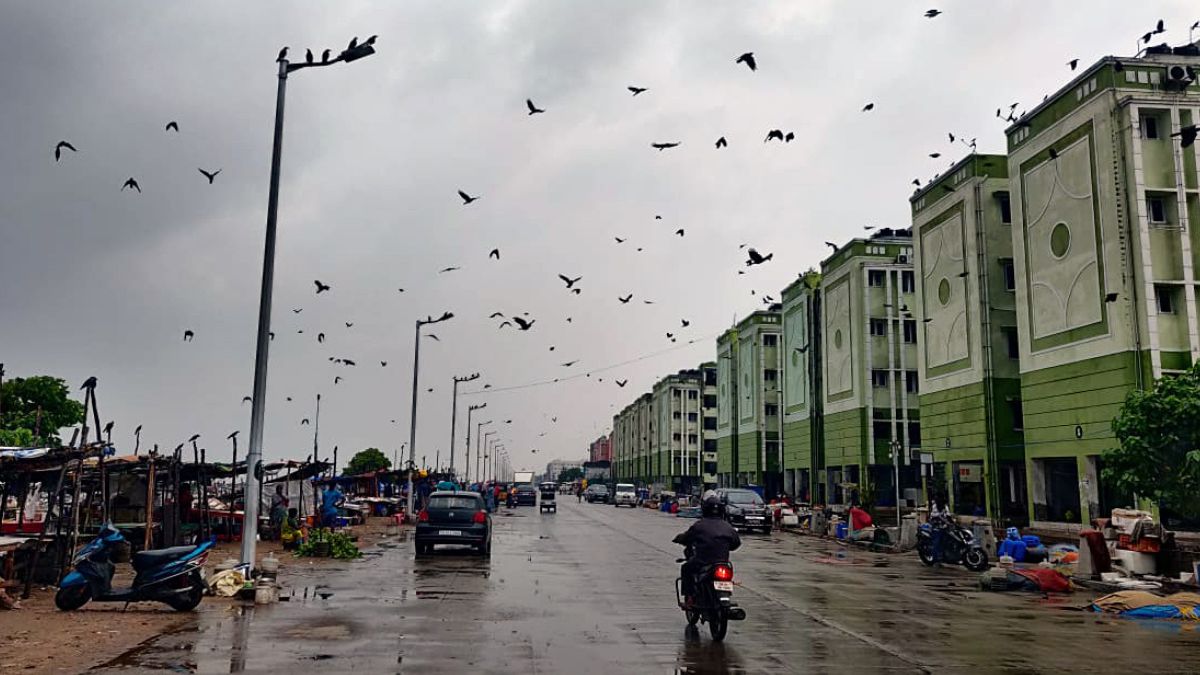
On Wednesday, a dust storm with light to moderate rain is expected in numerous locations in Delhi and the National Capital Region (NCR). The India Meteorogical Department (IMD) stated the city’s maximum and minimum temperatures are predicted to be in the range of 40 and 25, respectively.
The IMD tweeted an advisory that thunderstorms, dust with light to moderate intensity rain and gusty winds with speed of 30-50 km/hr would occur over and adjoining areas of many places of Delhi, North Delhi, North East Delhi, North West Delhi, West Delhi, Central Delhi, East Delhi and NCR (Loni Dehat, Hindon AF station, Ghaziabad, Indirapuram, Chapraula) Sonipat, Rohtak, Kharkhoda (Haryana), Baraut, Bagpat, Meerut, Khekra, Modinagar, Kithor, Garhmukhteshwar, Pilakhua, Hapur, Gulaoti, Siyana, Sikandrabad, Bulandshahr, Jahangirabad (UP).
For the next two hours, light to moderate intermittent rain is expected over and near Adampur, Hissar, Hansi, and Meham (Haryana).
Read Also: Will ensure executive doesn’t turn blind eye: Supreme Court on Manipur violence
On Thursday, May 18, light rain is predicted for in Delhi based on the seven-day prediction for the city. The sky will mainly be cloudy, with the potential of a light rain or drizzle, according to the weather office.
The air quality will continue to be deteriorated in the city after strong winds with dust swept across the Delhi-NCR on Tuesday. Following this, visibility had reduced to 1000 metres. Kuldeep Srivastava, the head of regional forecasting centre, said the dry atmosphere is one of the reasons for the dust storms.
Following Tuesday’s severe winds and dust storm that blasted across the Delhi-NCR, the city’s air quality had taken an alarming dip.
The monsoons, which are awaited across India, are likely to make landfall in Kerala on June 4. Usually, the monsoon arrives on May 31 or June 1 but the delay will be made up as the phenomenon progresses on its south-west to north-east arc. With extreme temperatures right from a cold sytart to May to dust-laden winds in mid-May, the weather in the country is paying the price for accelerating climate change.
Siddaramaiah to be new Karnataka CM, DK Shivakumar his deputy: Report
Tamil Nadu woman’s near-fatal brush with car-borne chain snatchers | WATCH
Latest News
Security lapse at Navjot Singh Sidhu’s Patiala home, says it will not deter him from raising his voice against Punjab
After his release from jail, he slammed the ruling Aam Aadmi Party (AAP) government for its law and order in the state.
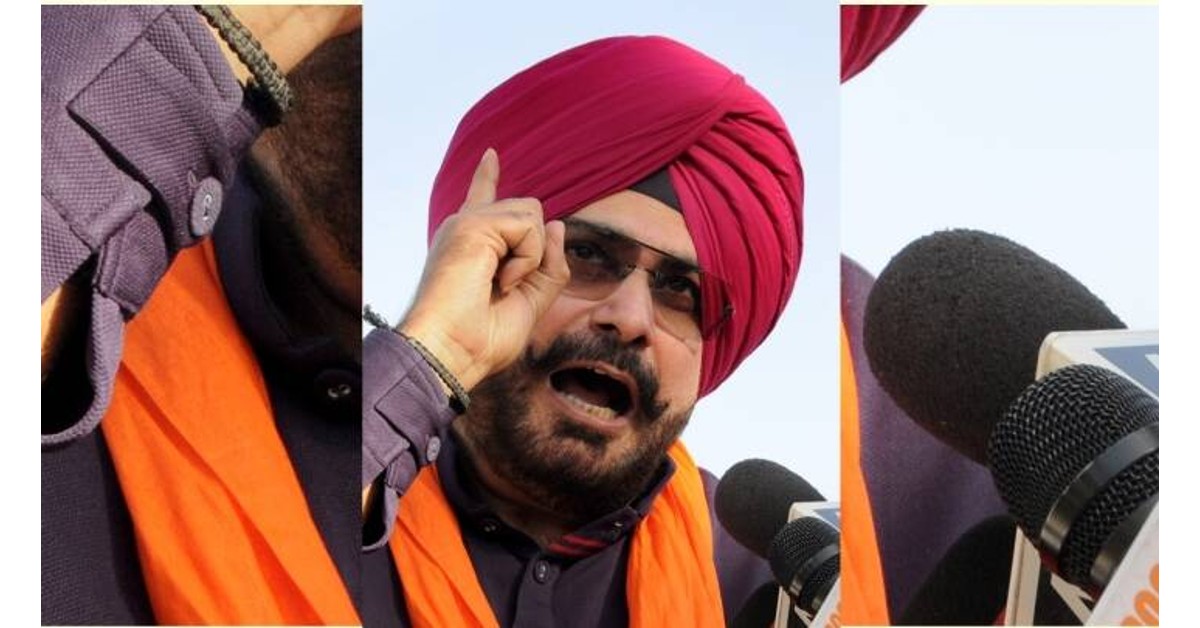
Congress leader Navjot Singh Sidhu has filed a complaint with the Punjab Police after he spotted a suspicious person wrapped in a grey blanket on his terrace. He alleged a security lapse at his Patiala home. He couldn’t catch him as he fled after his servant raised an alarm.
Taking to Twitter, Sidhu said, Today on the terrace of his residence an unknown suspicious character wrapped in a grey blanket was noticed around 7:00 pm, the moment his servant went out raised the alarm, and called for help, he immediately ran and escaped.
The 59-year-old further said that he has spoken to DGP Punjab Police and has also informed SSP Patiala. He said the security lapse will not deter him from raising his voice for Punjab.
Punjab Police registered a case in this matter. According to the reports, the Patiala Senior Superintendent of Police Varun Sharma visited his residence after the complaint and is currently investigating the matter. The CCTV footage of the area is also being scanned, reports state.
Cricketer-turned-politician came out of the Patiala Central Jail on April 1 after serving nearly 10 months in a 1988 road rage case. After his release from jail, he slammed the ruling Aam Aadmi Party (AAP) government for its law and order in the state.
He said Democracy is in chains. Punjab is the shield of this country. When dictatorship came in this country, a revolution also came, led by Rahul Gandhi.
Sidhu also slammed the Mann government over the pruning of security of slain singer Sidhu Moosewala and also making it public.
Former MLA and BJP leader Neeraja Reddy dies in road accident in Telangana
Latest News
Air India Delhi-San Francisco flight suffers tech glitch before take-off, returns to stand
The airline has not given any official statement in this matter.
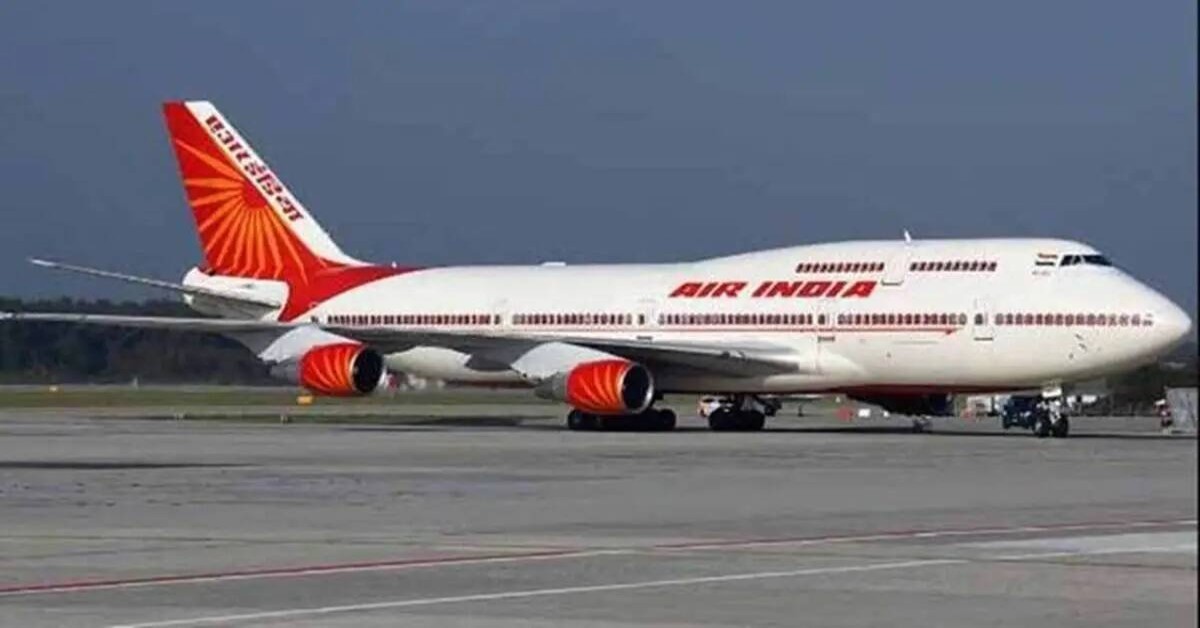
Air India flight which was en route to San Francisco from Delhi on Monday had to be returned to the stand because of a technical glitch. The San Francisco-bound flight suffered a tech issue before take off.
According to the reports, the aircraft which was carrying over 200 passengers from Delhi’s Indira Gandhi International Airport (IGI) had to be replaced with another aircraft. Later, the passengers were accommodated in another aircraft.
The airline has not given any official statement in this matter.
Read Also: Clashes in Jharkhand’s Jamshedpur after Ram Navami flag desecrated, Section 144 imposed
Earlier today, another Air India incident occurred where a London-bound flight returned to Delhi’s IGI airport after a mid-air brawl between an unruly passenger and the flight’s cabin crew.
A brawl ensued between a passenger and the crew members shortly after it departed from the airport at around 6:35 am. The onboard ruckus forced the plane to turn around and return to Delhi again where the raucous passenger was deboarded and handed over to the police at the airport.
Air India apologized to the passengers on the affected Delhi-London flight for the delay and inconvenience caused to them due to the incident and assured them that efforts will be made to ensure such incidents do not occur in the future.
Clashes in Jharkhand’s Jamshedpur after Ram Navami flag desecrated, Section 144 imposed
Paan shop owner’s daughter cracks Uttar Pradesh civil services exam, appointed Gonda SDM
-
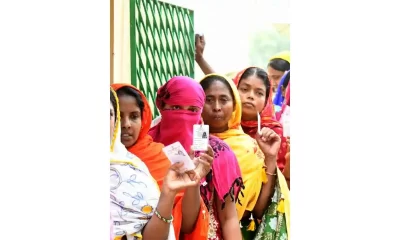
 2024 Lok Sabha Elections16 hours ago
2024 Lok Sabha Elections16 hours agoPrime Minister Narendra Modi urges citizens to vote in record numbers as voting for first phase of Lok Sabha elections begins on 102 seats across India
-

 Entertainment11 hours ago
Entertainment11 hours agoDo Aur Do Pyaar social media review: Social media users say Vidya Balan, Pratik Gandhi deliver standout performances in this adorable film
-
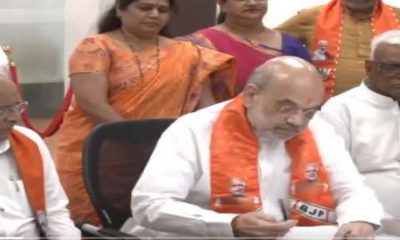
 2024 Lok Sabha Elections12 hours ago
2024 Lok Sabha Elections12 hours agoLok Sabha elections 2024: Amit Shah files nomination from Gandhinagar
-

 2024 Lok Sabha Elections15 hours ago
2024 Lok Sabha Elections15 hours agoKamal Haasan, Rajinikanth, Vijay Sethupathi, Dhanush vote in Chennai
-

 Entertainment13 hours ago
Entertainment13 hours agoYami Gautam starrer Article 370 releases on Netflix today
-
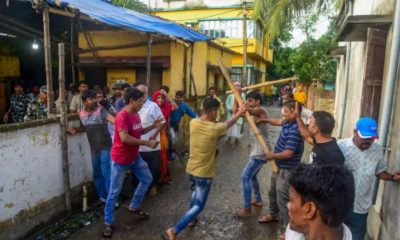
 2024 Lok Sabha Elections15 hours ago
2024 Lok Sabha Elections15 hours agoLok Sabha elections 2024: TMC, BJP workers clash in West Bengal’s Cooh Behar ahead of voting
-

 2024 Lok Sabha Elections16 hours ago
2024 Lok Sabha Elections16 hours agoLok Sabha elections 2024: Google Doodle marks the start of polls with index finger voting symbol
-
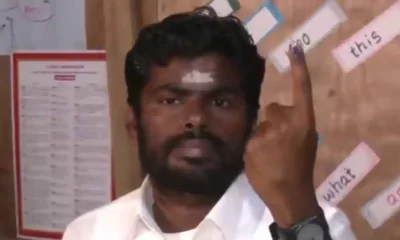
 2024 Lok Sabha Elections14 hours ago
2024 Lok Sabha Elections14 hours agoTamil Nadu BJP chief K Annamalai says party will sweep Karnataka and emerge victorious in Telangana, accuses DMK, AIADMK of influencing voters in Coimbatore

